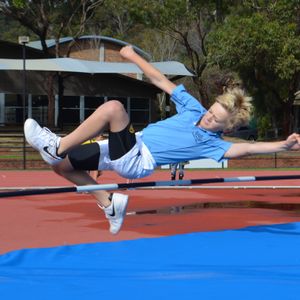Shaping Lives Through Sport
Sport plays a vital role in the development of children, offering numerous benefits that extend well beyond physical health.
Participation in sport improves children’s educational attainment and skills development including empowerment, leadership, and self-esteem – contributing to their overall well-being and prospects, according to new research. (Barça Foundation and UNICEF, 2019).
As a guide to the minimum level of physical activity required for good health, the Australian Government recommends that:
- ‘Children and young people participate in at least 60 minutes (and up to several hours) of moderate to vigorous-intensity physical activity every day.’
- ‘Children and young people should not spend more than two hours a day using electronic media for entertainment (such as computer games, internet, TV), particularly during daylight hours.’
Regular exercise is known to reduce the risk of disease, as well as emotional problems such as anxiety and depression. Habits are established early in life and evidence suggests that physically active children are more likely to mature into physically active adults.
How can parents help?
Parents can help their children to be physically active in several ways, including:
- Lead by example – be physically active yourself.
- Make sure that some family outings offer opportunities for physical activity, such as playing sport together.
- Encourage your child to walk or ride their bicycle for short trips, rather than rely on you to drive them.
- Support your child’s efforts in sport. Make sure you’re at their matches as much as possible, cheering them on from the sidelines.
- Set time limits on sedentary activities like computer games and television.
- Consult with your child’s school on ways to encourage greater participation in sports and physical activity.
The Right Focus
One of our teachers shared this week about a junior basketball game where Mosman Prep was quite soundly beaten. Instead of our boys dropping their heads throughout the game and at the conclusion, they remained upbeat, excited by the improved skills and teamwork they had displayed. This positive mindset was clearly fuelled by the positive actions and words of the attending parents and their coach.
Sport provides a unique and powerful vehicle in which life lessons can be learned and character shaped. Attitudes such as confidence, cooperation, empathy for each other, enthusiasm, integrity, responsibility, respect, and tolerance can be developed in a context where boys are often highly motivated.
Perhaps one of the most significant concepts connecting many of these dispositions is teamwork, which is taught and encouraged intentionally in our team sport program.
While winning matches is nice and at times a fitting reward for dedication, coaches and parents need to work together to focus on the truly important elements of team sport – the attitudes we hope our boys will carry with them as they grow to become the pillars of our community.
Our School Motto ‘Not for ourselves alone’, provides such a perfect anchor as we educate our boys to understand and embody TEAM - Together Everyone Achieves More.
Sport has the potential for benefits that extend far beyond the playing field, positively impacting their physical, social, emotional, and cognitive development, and laying the groundwork for a healthy and successful future. However, this can best happen when parents and teachers model and encourage positive attitudes.
Peter Grimes | Headmaster



















